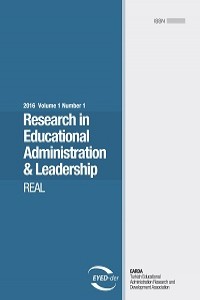Abstract
Smartphone applications have become increasingly popular, influencing functioning in all life domains. This study investigated the influence of the WhatsApp application on decision-making processes among kindergarten-managers. The research aimed to investigate the types of decisions made using WhatsApp. To examine this, a 3-phase mixed-method research was applied: (1) 23 semi-structured interviews with kindergarten managers. (2) Analysis of 74 WhatsApp managers-parents conversations. (3) A questionnaire administered to 324 kindergarten-managers. The managers reported a constant pressure for an immediate reaction and rapid decision making. Despite the pressure, managers claim they can limit the decision making to simple decisions and postpone complex decision making to off-line procedures. Yet, analysis of the questionnaire results indicate that this claimed ability to differentiate and limit the decision making to simple ones, is not the general case: managers who benefited more from WhatsApp tended to broaden the decision-making scope to all types of decisions. The expectation is that, as WhatsApp benefits to managers become more and more evident and the pressure to respond quickly increases, the barriers will tend to fall down, and more complex decision will be made on-line with the evident implications.
References
- Aburezeq, M. I., & Ishtaiwa, F. F. (2013). The impact of whatsapp on interaction in an arabic language teaching course. International Journal of Arts & Sciences, 165–180. Alazemi. (2017). Exploring Factors That Predict Kuwaiti Preservice Kindergarten Teachers' Intentions to Use Web 2.0 Technologies in Their Future Kindergarten Classrooms Using the Decomposed Theory of Planned Behavior. Birmingham: Doctoral dissertation, The University of Alabama at Birmingham. Alazemi, L. A. (2017). Exploring Factors That Predict Kuwaiti Preservice Kindergarten Teachers' Intentions to Use Web 2.0 Technologies in Their Future Kindergarten Classrooms Using the Decomposed Theory of Planned Behavior. The University of Alabama at Birmingham: Doctoral dissertation. Allagui, B. (2014). Writing through WhatsApp: an evaluation of students writing performance. nternational Journal of Mobile Learning and Organisation, 3(4), 216-231. Andone, D., Dron, J., & Pemberton, L. (2009). Developing a desirable learning environment for digital students. Cognition and Learning (TICL), 6(4), 253-271. Anglano, C. (2014). Forensic analysis of WhatsApp Messenger on Android smartphones. Digital Investigation, 11(3), 201-213.
Abstract
References
- Aburezeq, M. I., & Ishtaiwa, F. F. (2013). The impact of whatsapp on interaction in an arabic language teaching course. International Journal of Arts & Sciences, 165–180. Alazemi. (2017). Exploring Factors That Predict Kuwaiti Preservice Kindergarten Teachers' Intentions to Use Web 2.0 Technologies in Their Future Kindergarten Classrooms Using the Decomposed Theory of Planned Behavior. Birmingham: Doctoral dissertation, The University of Alabama at Birmingham. Alazemi, L. A. (2017). Exploring Factors That Predict Kuwaiti Preservice Kindergarten Teachers' Intentions to Use Web 2.0 Technologies in Their Future Kindergarten Classrooms Using the Decomposed Theory of Planned Behavior. The University of Alabama at Birmingham: Doctoral dissertation. Allagui, B. (2014). Writing through WhatsApp: an evaluation of students writing performance. nternational Journal of Mobile Learning and Organisation, 3(4), 216-231. Andone, D., Dron, J., & Pemberton, L. (2009). Developing a desirable learning environment for digital students. Cognition and Learning (TICL), 6(4), 253-271. Anglano, C. (2014). Forensic analysis of WhatsApp Messenger on Android smartphones. Digital Investigation, 11(3), 201-213.
Details
| Primary Language | English |
|---|---|
| Journal Section | Articles |
| Authors | |
| Publication Date | May 7, 2020 |
| Published in Issue | Year 2020 Volume: 5 Issue: 1 |
Cite
Cited By
Technological leadership of kindergarten teachers along their careers and during the COVID-19 period
International Journal of Child Care and Education Policy
https://doi.org/10.1186/s40723-024-00136-9
Ways of self-renewal of kindergarten teachers in forest kindergartens change
Journal of Adventure Education and Outdoor Learning
https://doi.org/10.1080/14729679.2024.2420313






